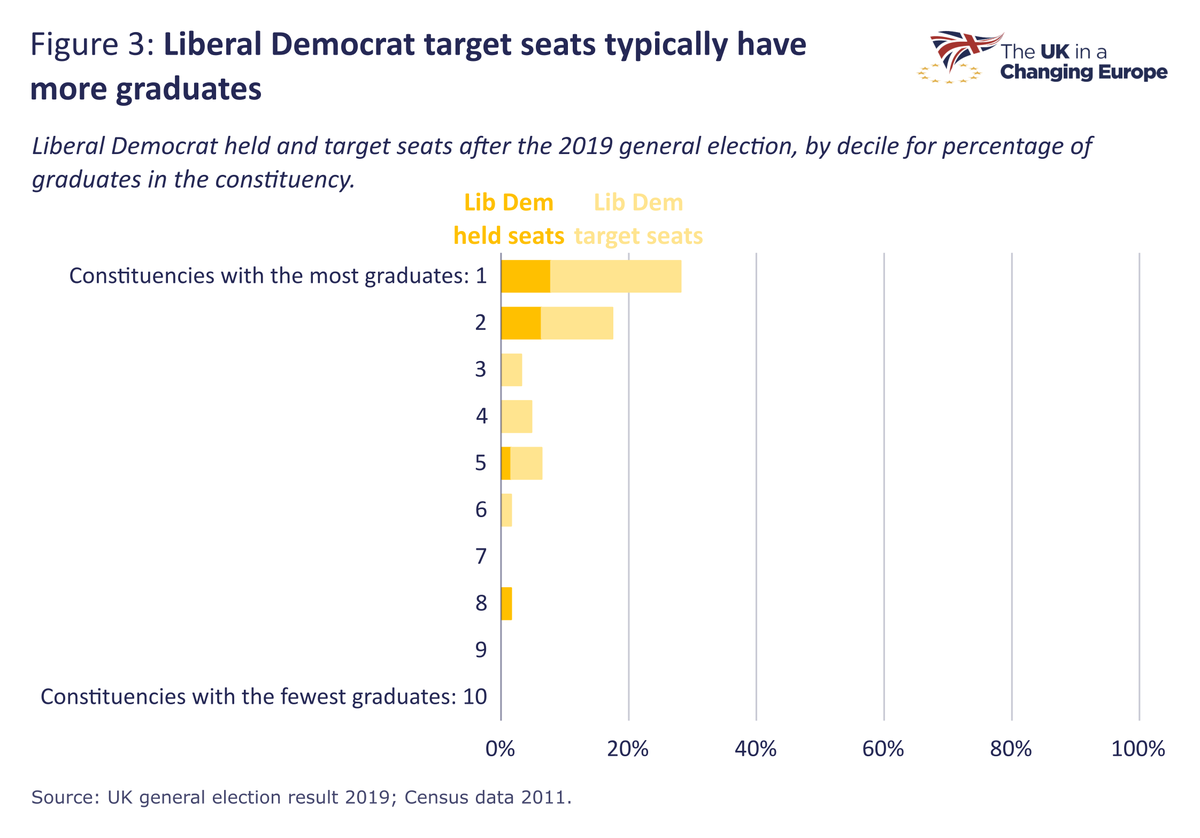As ballots for the Liberal Democrat's new leader opens today, we've just released a NEW short report:
Where next for the @LibDems?
It's by @ProfTimBale, @Aron_Cheung, & @DrAlanWager & loos at the electoral geography of the party.
READ the highlights below. 🔻
#Thursdaythread
Where next for the @LibDems?
It's by @ProfTimBale, @Aron_Cheung, & @DrAlanWager & loos at the electoral geography of the party.
READ the highlights below. 🔻
#Thursdaythread

While in most places they've dropped out of contention, the report authors identify a 'yellow halo' of rising support since 2010. 

How competitive are the Lib Dems now?
This graph puts the partial rebound in 2019 in a bit of context: the party is in second place in 91 seats, and has over 30% of the vote in 50. Miles away from 2010, but in a better place than after 2015.
This graph puts the partial rebound in 2019 in a bit of context: the party is in second place in 91 seats, and has over 30% of the vote in 50. Miles away from 2010, but in a better place than after 2015.

The Liberal Democrats have been in search of a core vote? But do they now have one?
They either hold or are competitive (within a 10% swing) of 30% of the constituencies in the top decile in terms of number of graduates. 🎓
They either hold or are competitive (within a 10% swing) of 30% of the constituencies in the top decile in terms of number of graduates. 🎓

It is clearer in constituency terms than it ever has been who the Lib Dems are challenging:
in 23 of 29 seats that the Lib Dems could reasonably claim to be well positioned to win, it's a @Conservatives vs LD contest.
They are now within a small 5% swing in a dozen of these.
in 23 of 29 seats that the Lib Dems could reasonably claim to be well positioned to win, it's a @Conservatives vs LD contest.
They are now within a small 5% swing in a dozen of these.

Another way of illustrating this is where the @LibDems and @UKLabour are in direct competition:
increasingly, pretty much nowhere at all.
increasingly, pretty much nowhere at all.

What advice would report author @DrAlanWager give to the @LibDems' new leader to double the number of seats?
• • •
Missing some Tweet in this thread? You can try to
force a refresh







